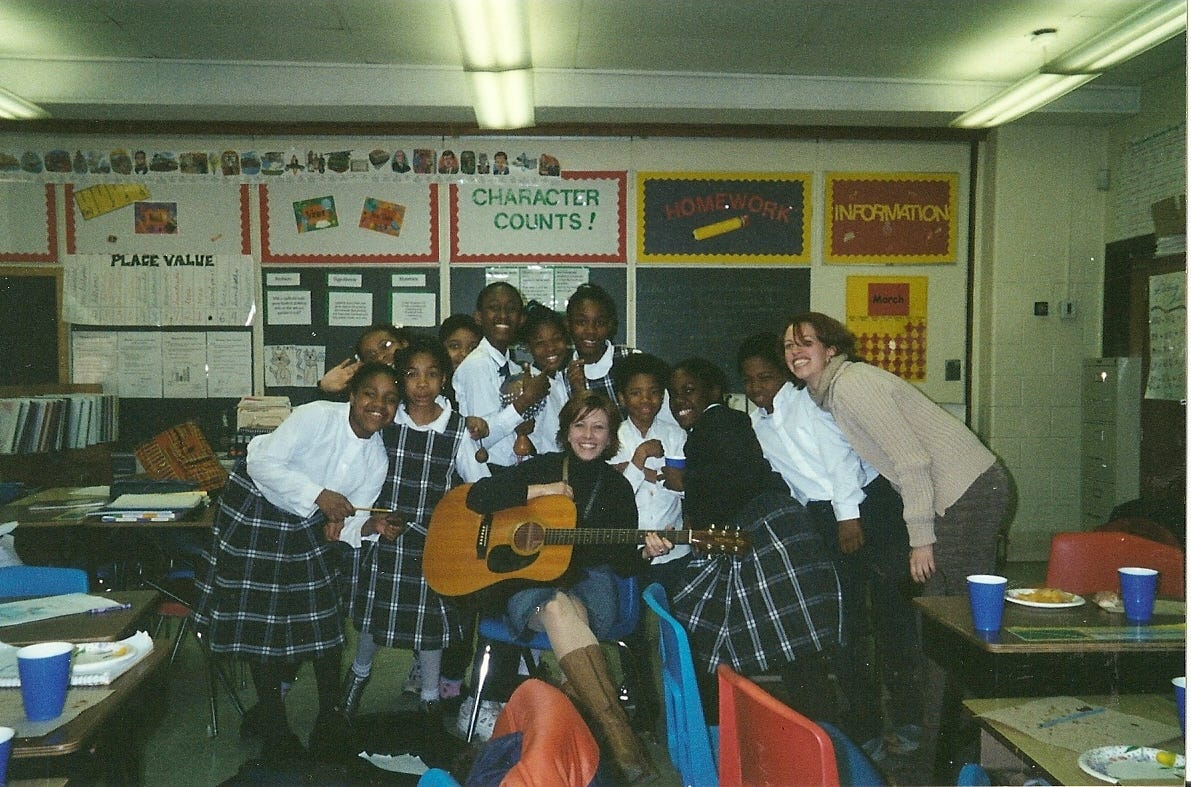Colorblind- Isn't That a Good Thing?
I remember the first morning when I realized that I was one of the only white people in the room. I was teaching 5th grade in Prince George’s County, Maryland, and my students and I were at Camp Schmidt. This camp was an environmental center that the 5th graders spent two days at (YES, I had to sleep in the dorm with 10+, 5th grade girls overnight!) exploring nature and enjoying the outdoors. We would hike through the woods, identify trees, plants and other wildlife, and enjoy campfires and other team building activities. It was a lot of fun and totally exhausting.
At the camp, there was a big hall where we gathered and ate meals. One particular morning, I looked around and noticed for the first time that I was the one of the only white people there. How had I not noticed that before? It certainly wasn’t the first time.
I think one of the main reasons I had never noticed was that I grew up in an era where the strategy to combat racism was to be colorblind. Colorblindness is the racial ideology that posits the best way to end discrimination is by treating individuals as equally as possible, without regard to race, culture, or ethnicity.”1 I remember singing songs like, “We are the World, We are the Children” and saying proudly, “I don’t see color!”
I also remember the deep level of shame and feelings of disorientation I felt when I learned how deeply problematic and hurtful the colorblind ideology was. I wanted to react saying, “Really? Aren’t you being too sensitive? Don’t you know what I am really trying to say? Don’t you know that my intent is to be loving?
In an article entitled, Why Colorblindness is Counterproductive, Adia Harvey Wingfield says, “How many times have you heard someone say that they “don’t see color,” “are color-blind,” or “don’t have a racist bone in their body?” Maybe you’ve even said this yourself. After all, the dominant language around racial issues today is typically one of color blindness, as it’s often meant to convey distaste for racial practices and attitudes common in an earlier era.”
She goes on to say, “Many sociologists, though, are extremely critical of color blindness as an ideology. They argue that as the mechanisms that reproduce racial inequality have become more covert and obscure than they were during the era of open, legal segregation, the language of explicit racism has given way to a discourse of color blindness. But they fear that the refusal to take public note of race actually allows people to ignore manifestations of persistent discrimination.”
In all reality, I have had to learn that being colorblind is an ideology that has not produced equality but has served to hide people’s very real lived experience for the sake of white people’s comfort. Did I get that? Was I trying to do that on purpose. Did I want to cause more pain and suffering? NO! But now that I know, I can do better.
By being colorblind, I have also been culture blind. Blind to what my own culture is and how it intersects with other cultures in America and around the world. Blind to the beauty of other cultures and to all the ways I have been shaped by my own. Blind to the ways that my culture likes to dominate and be the norm by which everything and everyone is judged. Blind to the very real systemic challenges that exist in our current society and how we got here.
No more! I want to see!
So you ask, what is the alternative? Finance executive, Melody Hobson, invites us to be “color brave” instead. Want to know what that means? Check out this short 14 minute TED talk entitled, “Color blind or Color Brave”.
Being color brave is scary and messy. It means that I think back and wonder what a person thinks about me now that I have asked a tough question or entered into a conversation about race not fully understanding what to say or what is problematic. I also know now that until I enter into the mess, I won’t learn and grow.
So here’s to entering the mess and being color brave. AND, I promise that I will try to learn what my mess is and how I need to clean it up… for the flourishing of all people!
https://www.psychologytoday.com/us/blog/culturally-speaking/201112/colorblind-ideology-is-form-racism






